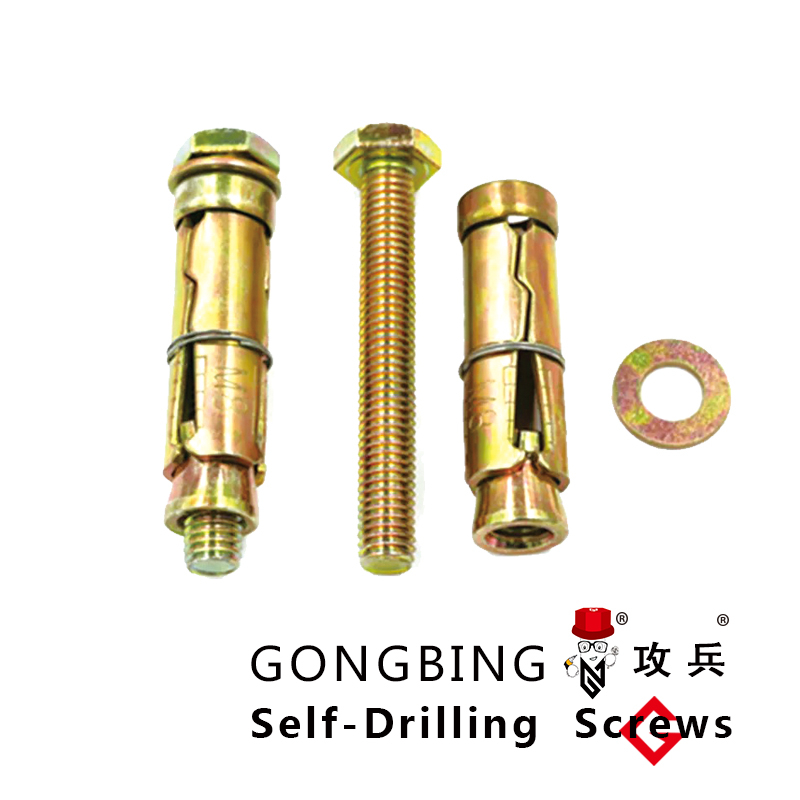Innovative Self-Fastening Bolts for Enhanced Automotive and Industrial Applications to Improve Efficiency
The Rise of Self-Fastening Bolts Innovations in Fastening Technology
In the ever-evolving world of engineering and manufacturing, the quest for efficiency, reliability, and simplicity has led to the development of a wide array of fastening solutions. Among these innovations, self-fastening bolts have emerged as a game-changer, transforming how various industries approach assembly and construction processes. This article explores the concept of self-fastening bolts, their benefits, applications, and the future prospects of this technology.
What are Self-Fastening Bolts?
Self-fastening bolts, also known as self-locking bolts, are specially designed fasteners that eliminate the need for additional components such as nuts or lock washers. These bolts feature a unique mechanism that allows them to secure themselves tightly within their designated holes upon installation. This self-locking capability stems from advanced engineering, often incorporating materials and designs that enhance friction and resistance to loosening due to vibration or movement.
Benefits of Self-Fastening Bolts
One of the most significant advantages of self-fastening bolts is the reduction in assembly time. Traditional fastening methods often require multiple steps, including threading and tightening nuts, which can be labor-intensive and time-consuming. Self-fastening bolts streamline this process, allowing for quicker installations while maintaining structural integrity. This efficiency can lead to lower labor costs and faster project completion times, a crucial factor in today's competitive market.
Another notable benefit is the enhanced safety and reliability these fasteners provide. Conventional bolted connections are susceptible to loosening over time, especially in environments with high vibrations or dynamic loads. Self-fastening bolts mitigate this risk, ensuring that connections remain secure even under challenging conditions. This reliability is particularly valuable in industries such as automotive, aerospace, and construction, where safety is paramount.
self fastening bolts

Additionally, self-fastening bolts contribute to weight savings in assembly design. By eliminating the need for extra components like nuts and washers, manufacturers can reduce the overall weight of their products, which is especially important in sectors such as aviation, where every gram counts. This weight reduction can lead to improved fuel efficiency, performance, and cost savings.
Applications in Various Industries
Self-fastening bolts can be found across a wide range of industries. In automotive manufacturing, they are used to secure components such as chassis parts and engine mounts, where reliability under vibration is critical. In the aerospace sector, these bolts play a vital role in securing crucial aircraft components, ensuring safety and performance within strict regulatory standards.
Moreover, the construction industry benefits significantly from self-fastening bolts, particularly in steel structures where rapid assembly is essential. These bolts facilitate quick erection times for buildings and bridges, enabling contractors to meet deadlines more effectively. Furthermore, self-fastening technology is also making strides in domestic applications, such as furniture assembly, where ease of use is a key selling point.
The Future of Self-Fastening Bolt Technology
As technology advances, the potential for self-fastening bolts continues to grow. Ongoing research and development efforts are focused on enhancing the materials and mechanisms used in these fasteners to improve their performance, durability, and adaptability to different environments. Innovations such as smart bolts integrated with sensors could provide real-time monitoring of connection integrity, further increasing safety and reliability.
In conclusion, self-fastening bolts represent a significant advancement in fastening technology, offering numerous benefits across various industries. Their ability to simplify assembly processes, enhance safety, and reduce weight makes them an attractive option for manufacturers looking to stay competitive in a rapidly changing market. As the technology continues to evolve, self-fastening bolts will likely play an increasingly integral role in shaping the future of engineering and manufacturing.
-
Weatherproof Plastic Expansion Anchors for OutdoorNewsJun.06,2025
-
Sustainability in the Supply Chain: Eco-Friendly TEK Screws ProductionNewsJun.06,2025
-
Load-Bearing Capacity of External Insulation FixingsNewsJun.06,2025
-
Double Head Bolts: Enhancing Efficiency in Industrial MachineryNewsJun.06,2025
-
Corrosion Resistance in Chipboard Screws: Coatings for Wholesale DurabilityNewsJun.06,2025
-
Butterfly Toggle Bolts : Enhancing Structural ResilienceNewsJun.06,2025
